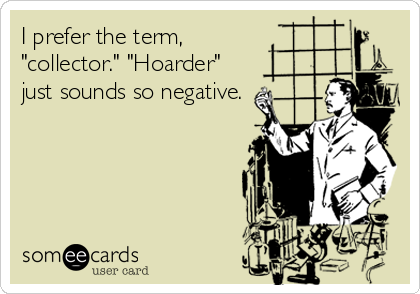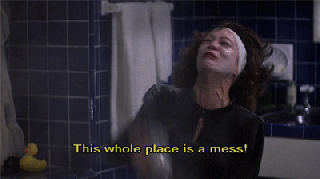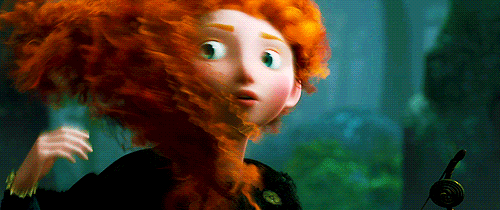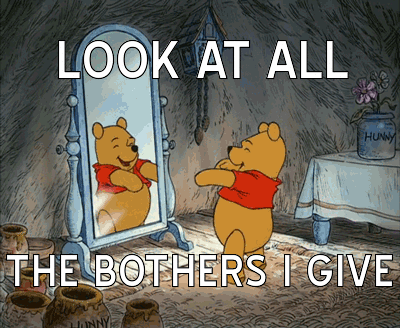 |
There are many ways to do the right things. Many means to go about accomplishing a certain end. When we seek for help in accomplishing our goals, or in creating a more favorable situation for ourselves, we are faced with a million choices when it comes to H O W T O G E T T H E R E.
"There" usually being:
- better health
- better living situation
- a more fulfilling career path
Et cetera. There could be a thousand versions of even this list if we're being honest, but here let's just call them General Things to be Better at. That doesn't really work. How about Betterment Goals. I don't like how that sounds either. But this illustrates my point. Words can fail.
The main focus of whatever journey you take on in getting yourself somewhere better in life, in whatever form "Being Better" would manifest in your imagination, should be
W H E R E V E R Y O U A R E.
R I G H T H E R E
R I G H T N O W.
And this is why many self-betterment guides would start with you listing your own answers to their questions. And yes, I am not here to discount you searching for those guides. In fact, depending on your personality, it might be better to look for more than one "guru" or whatever you want to call it, so that you can curate whatever resonates in your life in particular from many different sources, and make the roadmap you eventually follow your very own.
We like learning from others because we like information already processed and laid out for us to take in. This is easier than having to start from scratch, scrambling to find crumbs that will lead us to the bread, trying to find all the ingredients on our own. This is why we have grocery stores. I think I need to eat soon. I'm getting a little sidetracked.
Anyway, this is not a bad thing. This really does help. What I want to emphasize though, is that we should not be so naive and think that betterment ends in that learning. We take many things in. We make it our own. We share how we made it our own. Maybe more people will find it resonate better. They will take some of it in, just like how we took from others. Then they will make it their own.
Words do not contain the entirety of meaning. Other people can not provide the secrets to your success. Something has to come from you.
And yes, a lot of it relies on luck. But your luck improves when you improve your striving in finding these answers.
So, let me ask you a bunch of questions:
- Outlook: Do you think you have a positive one? When you think about your day upon waking up in the morning, how do you feel? What causes anxiety in you? What causes joy? Do you notice yourself feeling one more often than the other? Why do you think so? Are you okay with that? (Like I wake up meh most mornings, but I'm cool with it. I think it's just how I am and it's fine) And if you're not, is there anything within your power that you can change?
- The Good: What's already working out? This is important. What do you like that you don't really want to change in yourself, your living situation, your habits? You don't have to change everything. Maybe you don't even have to change very much. Honestly you don't even have to change at all. Let's be real. Your life your rules.
- The Bad: But if there are things that aren't working out, maybe take some time to look at them. There are things that don't work out that are too uncomfortable to even acknowledge so we fail to realize that there's something there that we can actually control. But then there are things that we feel we have no power over. For those things, is it possible to tell someone? "Misery loves company" and this isn't just a sadistic urge that humans have for no reason. When we find others with the same problems, we are able to pick each other's brains about possible solutions. There's another one, "Two heads are better than one". Maybe there's something you're not seeing that someone's who's gone through the same thing knows about. That was a long painful sentence to read and I apologize.
- The Ugly: Let me just talk about that word, Ugly. It has a bad rep. But I love it. I'm part of the niche crowd that uses it with a sense of endearment. Much of my hang-ups in life, I solved by changing my relationship with Ugly. More than my sense of self-worth ceasing to depend on my outward appearance, I see ugly as a sign of progress. Ugly is something that's on its way towards becoming. It's finding one's way. It's not incomplete, it's just in the process, and that's what life is. It's only complete when it ends. And So I Therefore Conclude: Ugliness and Beauty is like Life and Death. Polar opposites that are unalienable from each other. Just like.. well, poles.
So there are questions for today. Maybe we ask them every now and then. This can be a model we use everyday when we meditate in the morning, or this could be just a one time thing. It's a dish I've made from ingredients I've taken from different sources that I have now served to you. Maybe you take something out from it, or maybe you just eat and run, and burn off all of the energy. But that's your process. Make it yours. As for me, I'm done with this one, and hoping to make more in the future.
 Now, lunch.
Now, lunch.
























